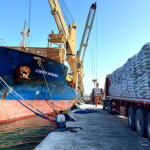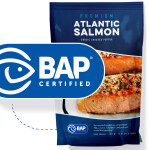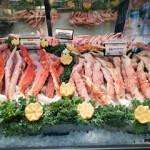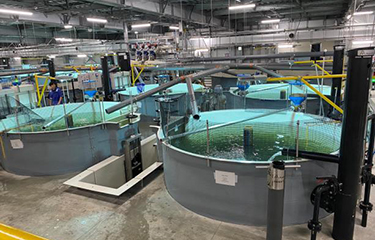Proximar Seafood, the company that has constructed a salmon recirculating aquaculture system (RAS) facility in Shizuoka Prefecture, Japan, announced in its Q2 results that it has finalized construction activity on the facility.
The company has been operational at its location since October 2022 and is currently producing 5 separate batches of Atlantic salmon in its RAS. According to the company’s latest announcement, the company has completed the acquisition of the land, settling the seller credit and transferring the formal ownership to Proximar Ltd., which it said reduces financing costs and is in line with its original plan.
“The second quarter has been hectic,” Proximar CEO Joachim Nielsen said during the results call.
Nielsen said the land acquisition was funded by a drawdown of its first tranche of bank debt, which consists of a JPY 8.8 billion (USD 60 million, EUR 55 million) loan provided by Mizuho Bank, Shizuoka Bank, and Development Bank of Japan. The company has also secured more funding through a private placement totaling NOK 74 million (USD 6.9 million, EUR 6.3 million), and a shareholder loan from Grieg amounting to NOK 104 million (USD 9.7 million, EUR 8 million).
He added that the facility’s progress has been steady, and the company is nearly finished.
“I’m pleased to say we’re now approaching the completion of construction and equipment installation of our 5,300-ton facility after many years of planning and more than two years of construction activities,” Nielsen said.
The company has fish in eight of its tanks in the nursery, which are “showing good growth.”
As the company nears completion of the facility, Nielsen said “the fundamentals for production of Atlantic salmon in Japan appear highly attractive” thanks to high transportation costs. Japan consumes 40,000 metric tons (MT) of fresh Atlantic salmon annually, which is entirely transported via expensive air freight.
“This supports our positive outlook for strong production economics going forward,” Nielsen said.
The company’s Q2 financials continue to reflect its status as an aquaculture start-up, as the company saw no revenue in the quarter. Operating expenses at the facility totaled NOK 13.4 million (USD 1.26 million, EUR 1.16 million), up from the NOK 6.7 million (USD 629,000, EUR 578,000) it cost in Q2 2022, due to “growing operational activity,” the company said.
Overall, Proximar lost NOK 13.7 million (USD EUR) in the quarter, a result CFO Ole Christian Willumsen said is “in line with expectations” due to increased activity and increase personnel costs as the company expands its workforce.
“These personnel costs make up about 60 percent of the operating expenses,” he said.
Assets, meanwhile have doubled in value in the past year. The company’s assets were worth NOK 554 million (USD 52 million, EUR 47 million) in Q2 2022, and were worth NOK 1.1 billion (USD 1.2 million, EUR 1.1 million) as of the end of Q2 2023 on 30 June.
“At the end of June, more than 90 percent of this [NOK] 1.1 billion is related to land, assets under construction, and associated equipment,” Willumsen said.
Looking forward, the company said it is making good process and expects the grow-out building to be finished by Q3, and that the company will continue to build biomass in its facility.
“We continue to see stable water quality and good growth conditions,” Nielsen said. “We’re well on track to meet our planned production growth.”
Photo courtesy of Proximar Seafood







